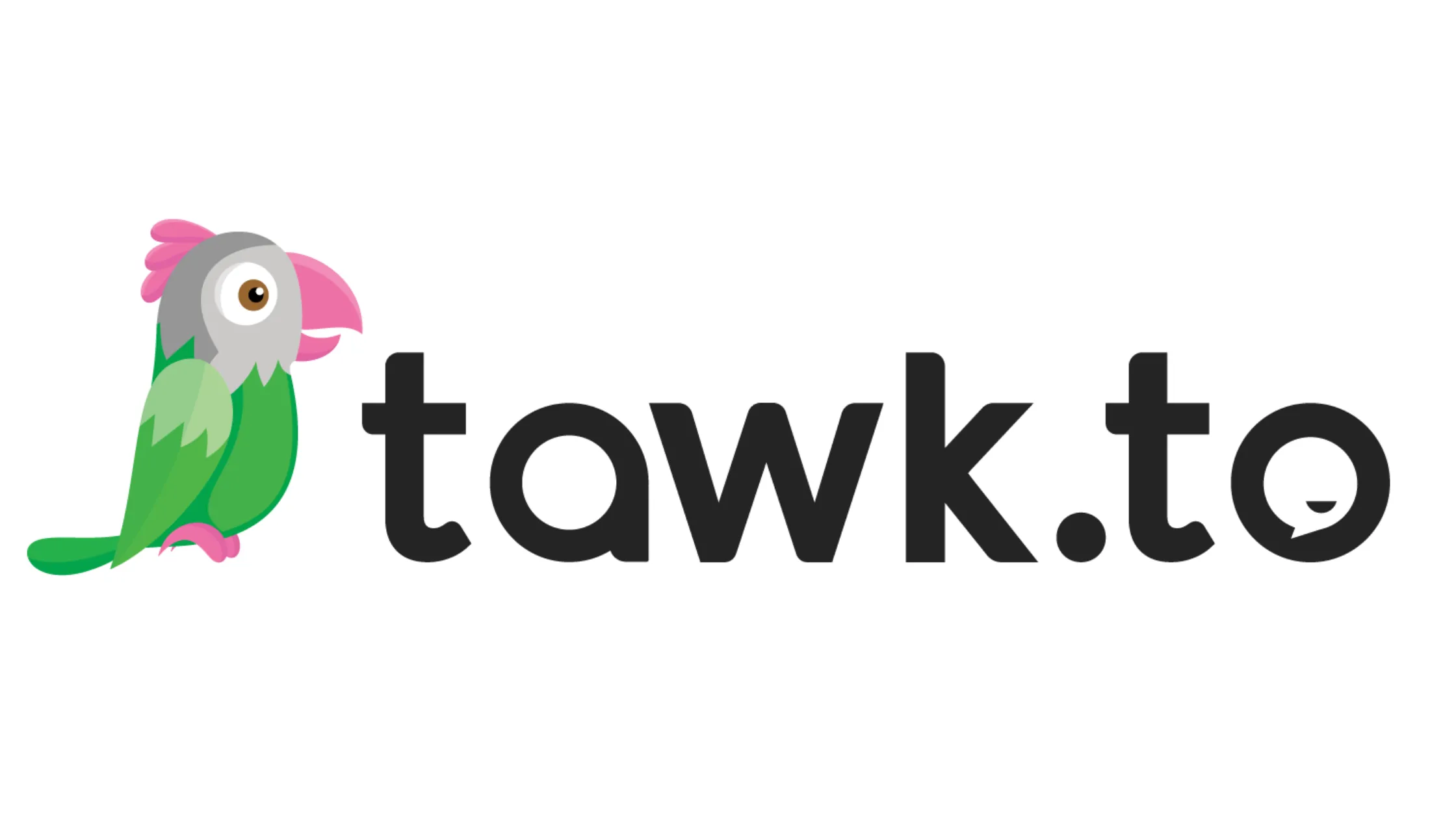
What is Series-A Funding?
Discover key strategies for securing Series-A funding, from crafting compelling pitches to building investor relationships during this crucial process.
You've got a brilliant idea, a solid product, and a team that's ready to take on the world. But now you're standing at the precipice of a make-or-break moment for your startup: Series-A funding. It's like trying to catch lightning in a bottle, isn't it? You're not just looking for a cash injection; you're searching for partners who believe in your vision and can propel your company to new heights. Let's dive into the nitty-gritty of Series-A funding and explore how you can navigate these choppy waters with the finesse of a seasoned sailor.
Understanding the Series-A Landscape
Before we jump in with both feet, let's get our bearings. Series-A funding isn't just another round of capital – it's a pivotal moment that can define the trajectory of your startup. It's where the rubber meets the road, separating the wheat from the chaff in the startup ecosystem.
What Sets Series-A Apart?
Series-A funding is a whole different ball game compared to seed funding. While seed rounds are often based on potential and promise, Series-A investors are looking for concrete evidence of growth and scalability. They're not just throwing spaghetti at the wall to see what sticks; they're making calculated bets on companies they believe can deliver substantial returns.
The Current State of Series-A Funding
The Series-A funding landscape is constantly shifting, like sand dunes in a desert wind. In recent years, we've seen:
- Larger average deal sizes
- More competition among startups for investor attention
- Increased scrutiny of business models and revenue projections
- A growing emphasis on sustainable growth over breakneck expansion
Understanding these trends is crucial as you prepare to throw your hat in the ring. It's not just about having a great idea anymore – it's about proving you've got the chops to turn that idea into a thriving business.
Preparing for the Series-A Marathon
Securing Series-A funding isn't a sprint; it's a marathon. And like any long-distance race, preparation is key. You wouldn't show up to run 26.2 miles without training, would you? The same principle applies here.
Getting Your Ducks in a Row
Before you even think about pitching to investors, you need to make sure your house is in order. This means:
- Having a clear and compelling business plan
- Demonstrating traction and growth metrics
- Building a strong team with diverse skills
- Developing a robust financial model
- Crafting a compelling story about your company's vision and potential
It's not just about having these elements; it's about weaving them together into a narrative that's as irresistible as a siren's song to potential investors.
Building Relationships Early
Here's a little secret: the best time to start building relationships with potential Series-A investors is long before you actually need the money. It's like planting seeds – you don't wait until you're hungry to start growing food. Start networking, attending industry events, and making connections well in advance of your funding round. This way, when you do come knocking, you're not a stranger but a familiar face with a track record they've been following.
Crafting Your Pitch
Alright, you've laid the groundwork, and now it's time for the main event: crafting a pitch that'll knock investors' socks off. This is where the rubber meets the road, folks.
The Art of Storytelling
Your pitch isn't just a presentation of facts and figures – it's a story. And like any good story, it needs a beginning, middle, and end. Start with the problem you're solving, take them on a journey through your solution and market opportunity, and end with a vision of the future that's so compelling they can't help but want to be a part of it.
Remember, investors are human too. They're not just looking at spreadsheets; they're buying into a narrative. Make yours unforgettable.
Numbers That Speak Volumes
While a great story is essential, it needs to be backed up by solid numbers. Your pitch should include:
- Market size and growth potential
- Current traction and growth rates
- Revenue projections and path to profitability
- Customer acquisition costs and lifetime value
- Burn rate and runway
These figures need to tell a story of their own – one of sustainable growth and massive potential. It's like painting a picture, but instead of colors, you're using data points.
Navigating the Due Diligence Process
Congratulations! Your pitch has piqued an investor's interest. But don't pop the champagne just yet – now comes the due diligence process. This is where investors put your claims under the microscope, checking for any cracks in the foundation.
Transparency is Key
During due diligence, honesty isn't just the best policy – it's the only policy. Be upfront about challenges and potential roadblocks. Investors appreciate candor and are more likely to trust a founder who acknowledges risks rather than one who tries to sweep them under the rug.
Preparing for Scrutiny
Expect investors to dig deep into every aspect of your business. They might:
- Review your financial statements with a fine-tooth comb
- Speak to your customers and partners
- Analyze your technology and IP
- Assess your team's capabilities and dynamics
Prepare for this scrutiny by having all your documentation in order and briefing your team on what to expect. It's like preparing for a tough exam – the more you study, the more confident you'll feel when it's time to perform.
Negotiating Terms
If you've made it this far, you're in the home stretch. But don't let your guard down – negotiating terms is a delicate dance that can make or break the deal.
Understanding the Term Sheet
The term sheet is the holy grail of the funding process. It outlines the key terms of the investment, including:
- Valuation and amount of investment
- Equity stake and dilution
- Investor rights and protections
- Board composition
- Liquidation preferences
Each of these terms can have significant implications for your company's future. It's like playing chess – every move matters, and you need to think several steps ahead.
Balancing Control and Capital
One of the trickiest aspects of negotiating Series-A funding is balancing the need for capital with maintaining control of your company. Investors will want certain rights and protections, but you need to ensure you're not giving away the farm.
Consider:
- How much equity you're willing to part with
- What level of control you're comfortable ceding to investors
- Which strategic decisions you want to maintain autonomy over
Remember, this isn't just about getting the highest valuation. It's about finding partners who align with your vision and can add value beyond just capital.
Closing the Deal
You're almost there! The finish line is in sight, but there are still a few hurdles to clear before you can officially close your Series-A round.
The Legal Nitty-Gritty
Once you've agreed on terms, it's time to get the lawyers involved. They'll draft the necessary legal documents, including:
- Stock Purchase Agreement
- Investor Rights Agreement
- Voting Agreement
- Right of First Refusal and Co-Sale Agreement
Don't let your eyes glaze over at this stage – these documents are crucial and can have long-lasting implications for your company. It's like building a house – you want to make sure the foundation is solid before you start decorating.
Managing Investor Expectations
As you prepare to close the deal, it's important to set clear expectations with your new investors. Discuss:
- Communication frequency and style
- Reporting requirements
- How you'll handle potential disagreements or conflicts
Think of it as establishing ground rules for a new relationship. The clearer you are upfront, the smoother things will be down the road.
Post-Funding Strategies
Congratulations! You've closed your Series-A round. But the work doesn't stop here – in many ways, it's just beginning.
Deploying Capital Wisely
With a fresh influx of cash, it's tempting to go on a spending spree. But remember, this money needs to fuel your growth to the next stage. Consider:
- Prioritizing key hires to fill gaps in your team
- Investing in marketing and customer acquisition
- Expanding your product offering or entering new markets
- Improving operational efficiency
It's like suddenly having a bigger engine in your car – you need to make sure you're using that extra power effectively to get where you want to go.
Building for the Long Haul
Series-A funding isn't the end goal – it's a stepping stone. As you move forward, keep your eyes on the horizon. Think about:
- How you'll scale your operations
- What milestones you need to hit for your next funding round
- How to build a sustainable competitive advantage
It's like climbing a mountain – reaching one peak just gives you a better view of the next challenge ahead.
Why Horizon-Labs.co is Your Ideal Series-A Product Development Partner
As we've explored the intricate world of Series-A funding, it's clear that having a robust product and a clear path to scalability are crucial factors in attracting investors. This is where Horizon-Labs.co shines as an invaluable partner for startups and founders navigating these turbulent waters. Led by a Y Combinator alum, Horizon-Labs.co brings a wealth of experience and insider knowledge to the table, understanding firsthand the pressures and expectations that come with seeking Series-A funding.
Horizon-Labs.co isn't just another product development company – it's a team of trusted and experienced product builders who've been in your shoes. They know that at the Series-A stage, you're not just building a product; you're crafting a scalable business model that can withstand investor scrutiny. With their expertise, you can focus on refining your pitch and building investor relationships, while they ensure your product is robust, scalable, and primed for growth.
Don't let product development challenges derail your Series-A aspirations. Reach out to Horizon-Labs.co today and discover how they can build your tech better, faster, and more cost-effectively than the competition. With Horizon-Labs.co as your partner, you're not just preparing for a funding round – you're laying the groundwork for long-term success. Take the first step towards a game-changing partnership – contact Horizon-Labs.co now and propel your startup towards Series-A success and beyond.
Frequently Asked Questions (FAQs) about Series-A Funding:
Q: How long does the Series-A funding process typically take?
A: The Series-A funding process can vary greatly, but on average, it takes about 3-6 months from initial pitch to closing the deal. However, it's not uncommon for it to stretch to 9 months or even a year in some cases. Factors like market conditions, investor interest, and the complexity of your business can all impact the timeline. It's crucial to start preparing well in advance and ensure you have enough runway to sustain your business throughout the process.
Q: What's the difference between a lead investor and other participants in a Series-A round?
A: A lead investor typically takes charge of the funding round, often committing the largest amount of capital and setting the terms for the investment. They usually take a more active role in the company, often securing a board seat. Other participants, sometimes called follow-on investors, generally invest smaller amounts and may have less influence over the terms. Having a strong lead investor can lend credibility to your round and help attract other investors.
Q: How much equity should I expect to give up in a Series-A round?
A: The amount of equity you'll need to give up in a Series-A round can vary, but it typically ranges from 15% to 30% of your company. The exact percentage depends on factors like your company's valuation, the amount raised, and the current market conditions. It's important to strike a balance between raising the capital you need and maintaining enough equity to incentivize your team and leave room for future funding rounds.
Q: Are there alternatives to traditional venture capital for Series-A funding?
A: Yes, there are several alternatives to traditional VC funding for Series-A:
- Revenue-based financing: You repay the investment with a percentage of future revenue.
- Strategic investors: Corporate venture arms or industry players who bring both capital and strategic value.
- Crowdfunding: Platforms like SeedInvest or Republic for equity crowdfunding.
- Venture debt: Loans specifically designed for venture-backed startups.
- Government grants: Particularly for startups in sectors like healthcare or clean energy.
Each option has its pros and cons, so it's worth exploring which aligns best with your company's goals and growth trajectory.
Q: How does the current economic climate affect Series-A funding?
A: Economic conditions can significantly impact Series-A funding. In times of economic uncertainty or downturns, investors may become more cautious, leading to:
- Higher bar for metrics and traction
- Lower valuations
- Longer due diligence processes
- More focus on path to profitability rather than just growth
However, it's not all doom and gloom. Downturns can also create opportunities for startups solving real problems, as investors look for recession-resistant business models. It's crucial to stay adaptable and focus on building a sustainable business regardless of market conditions.
Q: How does the size of my seed round affect my Series-A prospects?
A: The size of your seed round can indeed impact your Series-A prospects, but perhaps not in the way you might expect. While a larger seed round can provide more runway and resources to achieve significant milestones, it can also set higher expectations for your Series-A. Investors might expect more traction and growth from a company that raised a $3 million seed versus one that raised $500,000. On the flip side, a smaller seed round that you've used efficiently to achieve impressive results can make for a compelling Series-A story. The key is to focus on how effectively you've used your seed funding, rather than the amount itself.
Q: What are some red flags that might deter Series-A investors?
A: Series-A investors are looking for companies with strong potential for scale. Some red flags that might give them pause include:
- High customer churn rates
- Overly complex cap table from multiple seed rounds
- Lack of product-market fit or pivots without clear direction
- Founder conflicts or recent departures of key team members
- Unsustainable unit economics or unclear path to profitability
- Heavy reliance on a single customer or partner
- Regulatory uncertainties or pending lawsuits
Being aware of these potential issues and addressing them proactively can significantly improve your chances of securing Series-A funding.
Q: How important is it to have international traction for a Series-A round?
A: The importance of international traction for a Series-A round largely depends on your specific industry and business model. For some startups, particularly those in software or digital services, showing international traction can be a strong selling point. It demonstrates scalability and a large total addressable market. However, for others, especially those with physical products or location-specific services, strong domestic growth might be more relevant. What's crucial is to show that you understand your market dynamics and have a clear strategy for expansion, whether that's deepening your presence in your home market or going global.
Q: Should I consider taking a bridge round before Series-A if I'm not quite ready?
A: A bridge round can be a useful tool if you're close to, but not quite at, the metrics typically expected for Series-A. It can provide additional runway to hit key milestones or weather unexpected setbacks. However, it's not without risks:
- It can signal to future investors that you struggled to reach Series-A metrics on your initial funding.
- It may lead to a more complex cap table.
- It could result in less favorable terms than waiting for a full Series-A.
Before opting for a bridge round, consider if you can extend your runway through other means, such as focusing on revenue growth or cutting non-essential costs. If you do take a bridge round, have a clear plan for how you'll use the funds to position yourself for a strong Series-A.
Q: How do Series-A investors view founders taking money off the table?
A: The topic of founders taking money off the table (i.e., selling some of their personal shares) during a Series-A round can be delicate. Generally, Series-A investors prefer to see founders fully committed and aligned with the long-term success of the company. However, attitudes have evolved, and some level of secondary sales is becoming more accepted, especially if:
- It's a relatively small amount compared to the total raise.
- It addresses a genuine financial need that allows the founder to focus fully on the business.
- The founder retains a significant stake and is clearly committed long-term.
- The company's performance and prospects are strong.
If you're considering this, it's best to be upfront with potential investors and clearly explain your reasoning. Remember, the vast majority of your equity should remain tied to the company's future success.
Q: What role does AI and machine learning play in Series-A funding decisions?
A: AI and machine learning are increasingly playing a role in the Series-A funding landscape in several ways:
- For startups: Having a strong AI/ML component in your product can be attractive to investors, as it often implies scalability and potential competitive advantages.
- For investors: Some VC firms are using AI tools to help screen and evaluate potential investments, analyzing vast amounts of data to identify promising opportunities.
- Due diligence: AI tools are being used to complement traditional due diligence processes, analyzing market trends, competitive landscapes, and even founder backgrounds more efficiently.
- Valuation: Some firms are experimenting with AI models to help inform valuation decisions, though this is still in early stages and not widely adopted
.While AI is becoming more prevalent, it's important to note that the final investment decisions are still made by humans, taking into account many factors that AI might not capture, such as founder passion and team dynamics.
Whether you're validating an idea, scaling an existing product, or need senior engineering support—We help companies build ideas into apps their customers will love (without the engineering headaches). US leadership with American & Turkish delivery teams you can trust.
Need Developers?
We help companies build ideas into apps their customers will love (without the engineering headaches). US leadership with American & Turkish delivery teams you can trust.
















For Startups & Founders
We've been founders ourselves and know how valuable the right communities, tools, and network can be, especially when bootstrapped. Here are a few that we recommend.

Mistakes to Avoid When Building Your First Product
Learn the key mistakes founders make when building their first product—and how to avoid them for a faster, smoother launch.
Read more
The Rise of AI in Product Development: What Startups Need to Know
Learn how AI is transforming product development for startups. From MVPs to scaling, here’s what founders need to know in today’s AI-driven world.
Read more
No-Code vs. Custom Development: Which is Right for Your Startup?
Weighing no-code vs. custom development? Learn which is right for your startup depending on stage, budget, and product complexity.
Read more
What is Mixpanel?
Learn how Mixpanel helps startups track user behavior to improve products and accelerate growth with clear data-driven insights.
Read more
How Tawk.to Can Boost Your Startup’s Customer Support Game
Learn how Tawk.to can benefit startups by enhancing customer support and engagement. Perfect for early-stage founders!
Read more
Grow Your Startup With Anthropic's AI-Powered Tools
Discover how Anthropic's cutting-edge AI tools can accelerate your startup's success. Learn about their benefits and see why they can be trusted by startups.
Read more
What is Data-Driven VC?
Learn what a data-driven VC means and how such investors can benefit your startup’s growth and fundraising journey.
Read more
What is Blockchain?
A beginner-friendly guide on blockchain for startup founders, covering key concepts, benefits, challenges, and how to leverage it effectively.
Read more
What is Cybersecurity?
Learn cybersecurity basics tailored for startup founders. Understand key risks, best practices, and how to protect your startup from tech threats.
Read more
What is Seedcamp?
Learn what Seedcamp is, how its European seed fund and accelerator program work, and how founders can use its capital, mentorship, and network to scale their st
Read more
What is AngelList?
AngelList is a prime platform connecting startup founders to investors, talent, and resources to accelerate early-stage growth.
Read more
What is 500 Startups?
Learn what 500 Startups (now 500 Global) is, how its accelerator and seed fund work, and when founders should consider it—plus tips for early-stage startups.
Read more.webp)